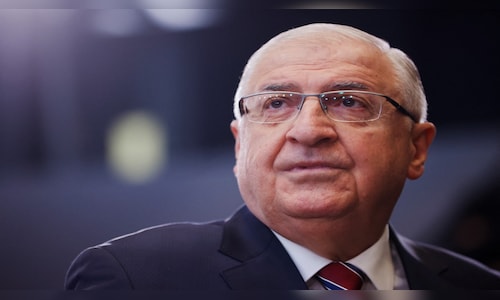Turkey has established itself as a significant foreign ally of Syria’s newly formed government since rebels—some of whom were supported by Ankara for years—overthrew former Syrian President Bashar al-Assad in December, effectively bringing an end to his family’s five-decade rule.
The country has committed to assisting in the reconstruction of neighboring Syria and facilitating the return of millions of refugees from the Syrian civil war. Additionally, it played a crucial role last month in persuading the U.S. and European nations to lift sanctions on Syria.
Turkey’s growing influence in Damascus has sparked concerns in Israel and raised the possibility of tensions or conflict in Syria among regional powers.
In written responses to inquiries from Reuters, Guler mentioned that Turkey and Israel—who conducted its latest airstrikes on southern Syria late on Tuesday—are engaged in ongoing de-confliction discussions to prevent military incidents in the region.
The primary focus for Turkey in Syria is to maintain its territorial integrity and unity while combating terrorism, he stated, adding that Ankara is supporting Damascus in these initiatives.
”We have commenced providing military training and advisory services, and are taking measures to enhance Syria’s defense capabilities,” Guler said, without providing further details on those measures.
Appointed to his position by President Tayyip Erdogan two years prior, Guler remarked that it is premature to discuss the potential withdrawal or relocation of the over 20,000 Turkish troops present in Syria.
Ankara has secured control over extensive areas of northern Syria and established numerous bases there following several cross-border operations against Kurdish militants classified as terrorists.
This can ”only be reassessed when Syria attains peace and stability, when the terrorism threat in the region is completely eliminated, when our border security is thoroughly guaranteed, and when the dignified return of those who fled is achieved,” he commented.
NATO member Turkey has accused Israel of hindering Syrian peace and reconstruction through its military actions in recent months and has also strongly condemned Israel’s actions in Gaza since late 2023.
However, the two regional powers have been discreetly working towards creating a de-confliction framework in Syria.
Guler characterized the discussions as ”technical level meetings aimed at establishing a de-confliction mechanism to avert unwanted incidents” or direct confrontations, along with ”a structure for communication and coordination.”
”Our endeavors to establish this framework and make it fully operational are ongoing. Nevertheless, it is important to note that the de-confliction mechanism does not equate to normalization,” he told Reuters.
Also Read: Exclusive | Nithin Kamath says Zerodha wants to be a full-fledged financial conglomerate in the next decade
First Published: Jun 4, 2025 4:25 PM IST



